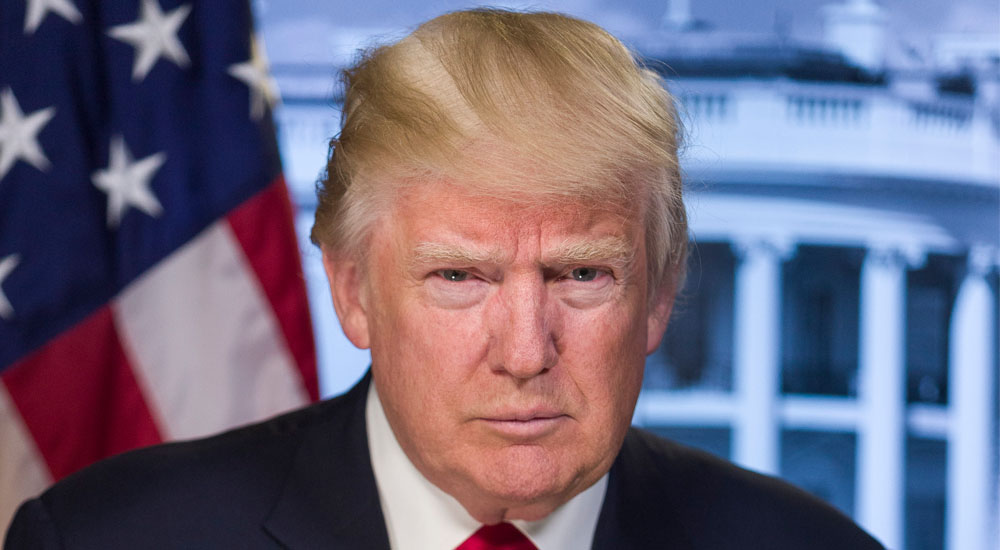President Donald Trump is now being sued again. No, it’s not a woman coming out of the shadows with allegations involving things happening under the bed sheets. The plaintiff is actually a literary and human rights organization that is infuriated with the commander in chief and has criticized him as a bully, an autocrat, a user of hate speech and an enemy of free expression.
According to a report from AP, the PEN American Center, which is defined as a group that works to defend and celebrate free expression through the advancement of literature and human rights, filed a lawsuit in a Manhattan federal court on Tuesday. The group alleges that “official acts” undertaken by President Trump have “violated the First Amendment and his oath to uphold the Constitution.”
PEN claims that the President was meddling in the proposed merger of AT&T and CNN and notes Trump’s comments regarding Jeff Bezos, founder of Amazon and owner of The Washington Post. Trump has threatened antitrust action against Amazon and has repeatedly targeted their shipping tactics in relation to the U.S. Postal Service.
“President Trump has First Amendment rights and is free to criticize the press vehemently, but he is not free to use the power and authority of the United States government to punish and stifle it,” the lawsuit reads.
On their website, PEN claims that “most of the president’s verbal attacks on the press are speech that is protected under the First Amendment. Our country’s broad protections for free speech allow the president to denigrate the press and even go after individual journalists by name.” Their issue is that whenever “President Trump crosses the line and threatens to use his authority to punish the media, or actually does so, it is vital for the courts to step in and affirm that such threats and reprisals are unconstitutional.”
PEN CEO Suzanne Nossel said this week that President Trump has gone beyond harsh, yet legally protected rhetoric such as “fake news” and deeming reporters the “enemy of the people.”
“There is widespread concern that the president is actually extracting reprisals on the media for coverage he considers unfavorable,” she said.
The advocacy group is not vying for any punitive damages in the case, but is asking that the President be restrained from “directing or ordering any officer, employee, agency, or other agent or instrumentality of the United States government to take any action against any person or entity with intent to retaliate against, intimidate, or otherwise constrain speech critical of him or his Administration.”
Considering the Alien and Sedition Acts expired over 200 years ago, it is quite precarious of where PEN is getting their legal standing in this situation. In the year and a half President Trump has been in office, there have been no journalists jailed, threatened, killed, or even censored like they are frequently in other countries.
Regardless, David Schulz, co-director of the Media Freedom and Information Access Clinic and national trial and appellate attorney who represents news and entertainment media in First Amendment matters, says that PEN “wouldn’t be filing this lawsuit if we didn’t think it would be meritorious…There is so much evidence” against the President.
Insofar as their legal standing is concerned, PEN still has the burden of proof that the organization and its thousands of members must fulfill to show that they have been affected by Trump’s harsh, yet legal rhetoric. As stated by Kristy Parker, a civil rights attorney and counsel for Protect Democracy, “PEN’s members, especially those who are journalists covering current affairs, are indeed directly affected by the President’s retaliatory acts and credible threats because they are forced to work in an atmosphere where they could be punished by the President for their speech.”
Interestingly, while PEN continues with the lawsuit, the President is currently probing into the situation surrounding the potential assassination of prominent Saudi journalist Jamal Khashoggi, who has been missing since entering the Saudi Arabian consulate in Istanbul, Turkey, two weeks ago. Khashoggi was also highly critical of President Trump and was even banned by Saudi authorities banned from writing in newspapers, appearing on TV, and attending conferences after speaking out also against the Saudi royal family, according to Middle East Eye. Although he was critical of Trump, the President is still threatening sanctions against Saudi Arabia if it is found that they were involved in the journalist’s disappearance.

